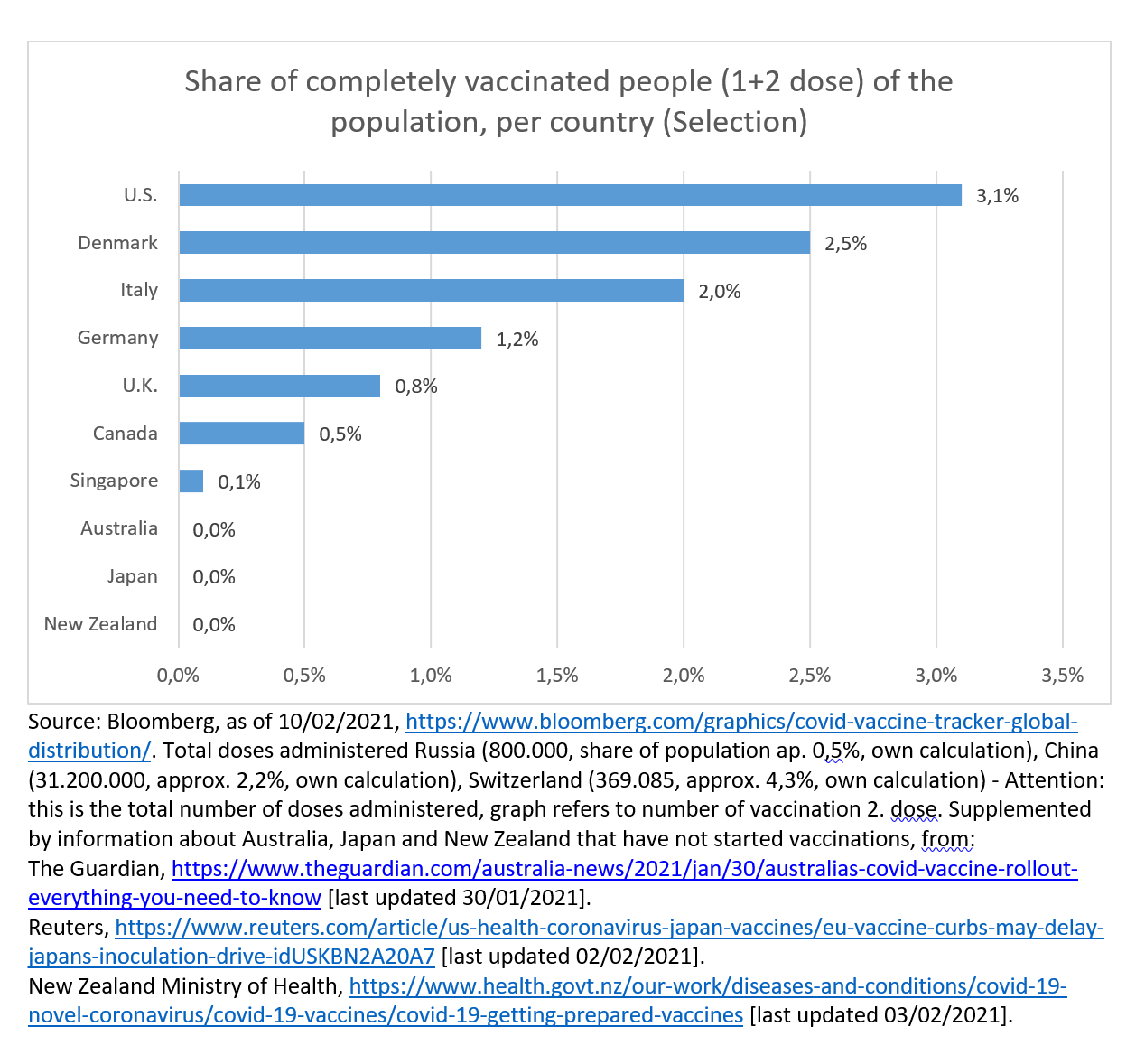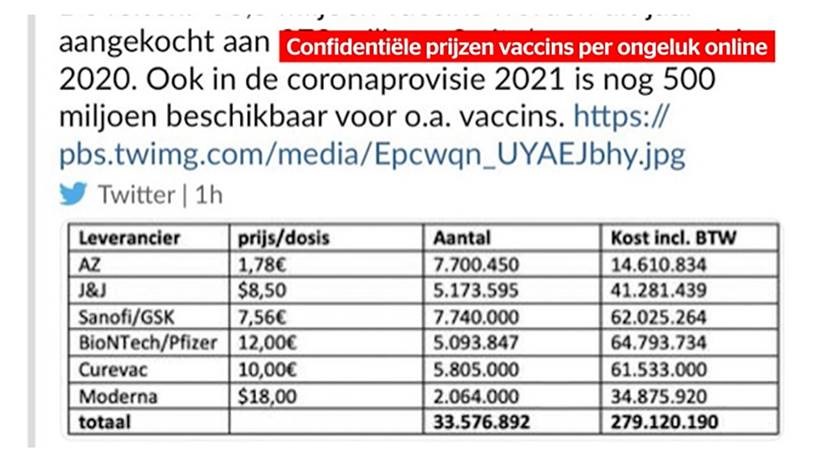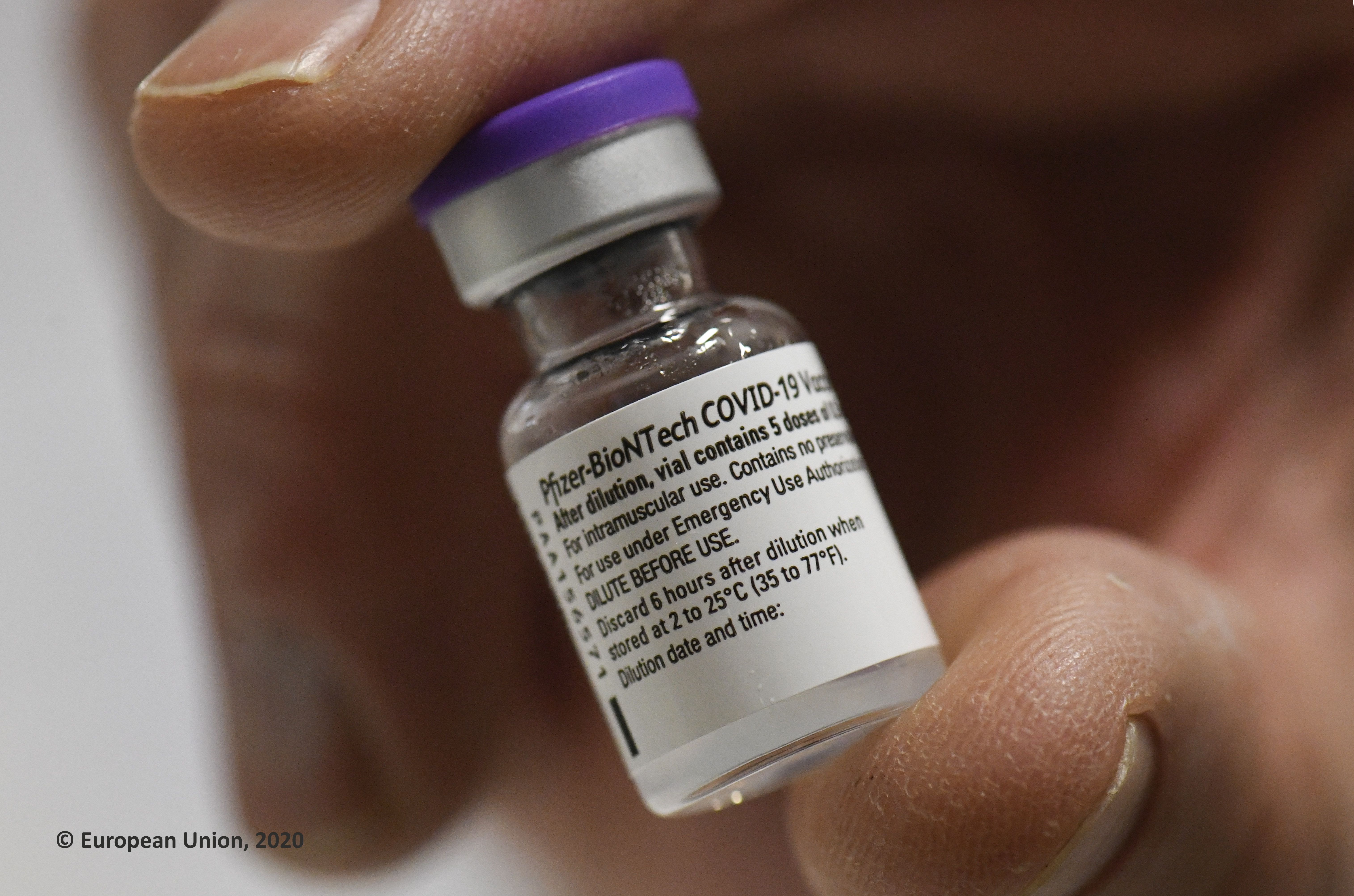Success thanks to hard work and not through complaining / Myth: Europe ordered vaccine too late and spent too little money / Not everything is perfect, but others would have more reason to admit mistakes
"That the BioNTech factory in Marburg is brought to service earlier is a great success and a sign that getting down to business is more important than complaining. In the last few months, those responsible at BioNTech as well as representatives of the regional and national German government and the EU have worked hard to make the commissioning possible. In many discussions with BioNTech and the Hessian government, among others, I have tried to add my part as a small contribution. The factory is close to my heart because it is a game changer for Europe in pandemic control and because I once visited it personally during my student days studying medicine in Marburg. The example shows what needs to be done now: The bringing into service was not achieved by complaining towards the pharmaceutical industry or the political leaders in Germany and EU, but by working hard," said the health spokesperson of the largest political group in the European Parliament (EPP, Christian Democrats), Dr med Peter Liese.
In the European Parliament's plenary debate on vaccine procurement, Peter Liese dispelled two myths.
"It is always said that the European Union ordered the vaccine too late. However, there were problems for the delay in signing the contract for which neither the European Commission nor BioNTech are responsible. Rather, it was the partner Pfizer that refused to accept the European liability rules for months. I have not met anyone who says that it is a good thing if European citizens cannot defend themselves in European courts if a company makes a mistake and if consequently, the citizens are harmed. Moreover, Canada, which is always cited as an example of early and sufficient ordering from BioNTech/Pfizer, currently has fewer people vaccinated than most EU member states; this is because the US has issued an export ban and the world receives supplies from the EU. For second vaccinations, the EU countries are clearly ahead.

The second myth claims that the European Union has only invested 2.7 billion euros in vaccination, while others have invested much more. This fails to recognise that the European Union works together with the member states. From the European Structural and Investment Fund (ESI), the European Commission invested 2.7 billion euros early on. However, the member states are responsible for financing the actual deliveries and thankfully, a Belgian state secretary has tweeted the prices.

Source: Eva, De Bleeker, https://www.hln.be/binnenland/zoveel-gaan-we-betalen-voor-de-coronavaccins-staatssecretaris-zet-confidentiele-prijzen-per-ongeluk-online~a3dceef4/?referrer=https%3A%2F%2Fwww.google.com%2F
So far no one has denied this tweet. This means that the European Union is collectively spending over 22 billion euros on vaccine supplies1. It is good when Ursula von der Leyen does not give the impression, as today in the plenary of the European Parliament, that everything went perfect. I understand that people are frustrated and angry that things are not moving faster. However, many of those who are now raising their criticism the loudest in politics were mainly busy talking down the dangers of the corona virus in the time when decisions had to be made to vaccine procurement.
It is high time now to start working and acting: I call for effective protection against the mutations through much better Europe-wide controls at the borders, a quick signing of the contract between the EU Commission and the company Novavax, which recently presented good results, and comprehensive cooperation to adapt the vaccines to the new mutations as quickly as possible," Liese concluded.
1 These figures include deliveries from Sanofi, which is why the figure has to be reduced, but it then has to be increased again because in the meantime contracts have also been concluded or are about to be concluded with Novavax and Valneva.


